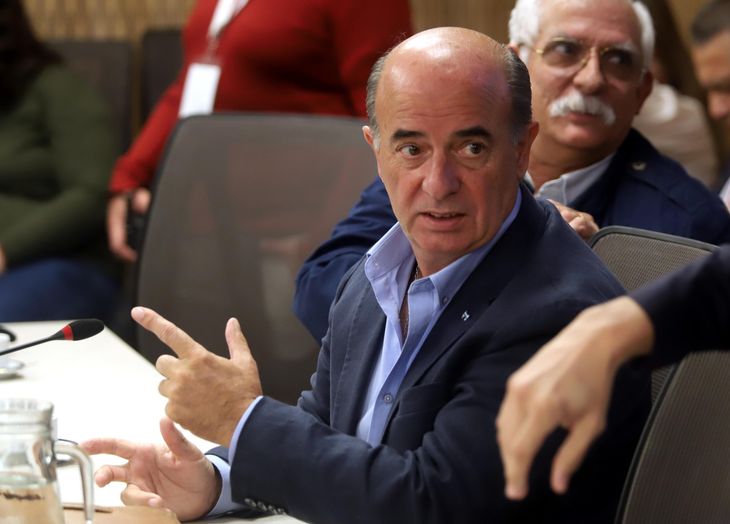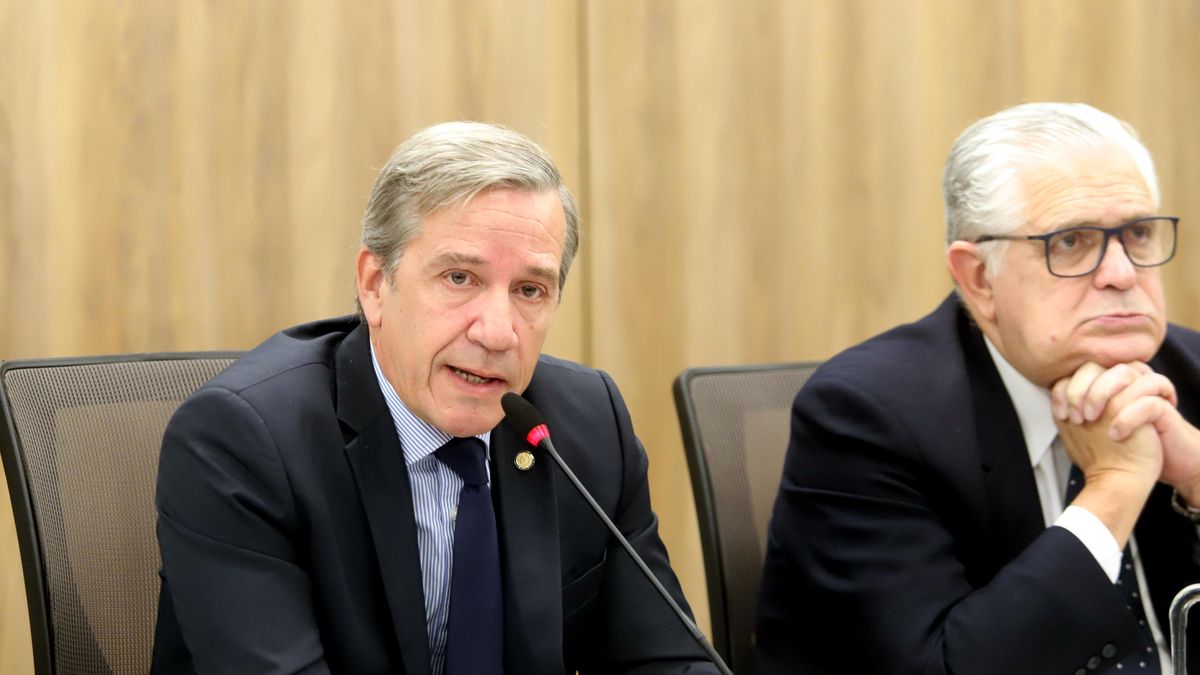Fernando Brovelli Report.-
In a new day of debate in Deputies of a series of initiatives by the ruling party, the Former Director of the Armed Forces (FFAA) Juan Martín Paleo He referred to the project that seeks to reform the Law 24.059 on Internal Securitypresented by Luis Petri, Patricia Bullrich and Guillermo Francos.
The initiative enables the Armed Forces to participate in internal security activities “in case of terrorist actions” without the need to resort to the declaration of state of siege. Its functions They will achieve “population control, installation and operation of fixed and mobile checkpoints for vehicles and people”; securing and cordoning off an area; crowd control; use of riot control equipment; procedures for cooperating with local police and/or international police.” In addition, it incorporates the Federal Penitentiary Service as a space for intervention and enables the use of its arsenal and infrastructure and enables the sharing of intelligence resources.
As of Tuesday, two proponents of the initiative had been invited: the current Minister of Defense, Luis Petriand the former head of that same portfolio Horacio Jaunarena (three periods, 1989-1989, 2001 and 2002-2003). Unlike them, Juan Martin Paleoa graduate of the Military College in 1983 and head of the Armed Forces in the period 2020-2024, considered that “The bill is unnecessary, because with the current framework in force the Armed Forces can be usedafter declaration of the state of siege“. He also asked for caution, because otherwise ““We’re going to release the Rottweiler.”
“The only one who is protected by this is the political authority that gave the order.“, Paleo understood and anticipated that “this opens a door for our officers and non-commissioned officers, because they are the ones who are going to be on the front line, to have to parade through the courts again explaining to a judge the proportionality of their actions.” The comment becomes relevant given that Luis Petri He was consulted in commissions about the degree of Acceptance of reform within the Armed Forces. At that time, he replied: “The Armed Forces are vertical, they do not work by consensus: they must be subordinate to the law“.
National Defense Commission
Mariano Fuchila
Speech by Juan Martín Paleo in the House of Representatives
During the meeting at the National Defense Commission, Juan Martin Paleo He introduced his position by arguing that “our country has a vision of what aggression is that is based on a geographical criterionthat is to say, it considers where it comes from.” Then, he contrasted it by pointing out that “the vision that the State has to have, especially in the terms of the conflict to which the international scene seems to be heading, is the intensity of the aggression.”
He then said that the democratic consensus established that “The Armed Forces should stop being a factor of political power. The restrictions imposed on the use of the military instrument, of a budgetary and legal nature, respond to that logic, which no longer exists.” In that sense, he pointed out that Military intervention should occur “when the threat being faced is the invasion of another country using submarines and airplanes” or “in defense of the Constitution. There we would have to see what degree of use of force is used to defend the continuity of the State.”
Finally, and in reference to the bill, he stressed that “The success factor of an operation against terrorism is anticipation, and the bill proposes the use of reactive weapons and also with inadequate procedures.” Regarding these, he said that civilian control is “proper to police security forces” and understood that internal situations can be perfectly addressed with “effective intelligence, coordination between state forces and political will.”
After him, it was the lawyer’s turn. Felix Lonigrowho understood that the reform “does not change the fact that the Armed Forces can participate because that is already there” and understood in that framework that “There is no unconstitutionality in the project. Participation is even encouraged with more care and foresight than the current law has, always within the framework of a penal law.”
Beltran Benedict

Deputy Beltrán Benedit this Tuesday at the National Defense Commission.
Mariano Fuchila
Security reforms under debate
Inside the package of reforms of the Penal Code and other legislative initiatives that make up the security and justice agenda, the ruling party gave priority to the following projects:
- Expansion of the National Registry of Genetic Data Linked to Crimes against Sexual Integrity: Genetic material will be extracted to integrate the registry of all persons prosecuted for crimes contemplated by the Criminal Code. It obtained partial approval in the House of Representatives and a ruling in the Senate.
- Criminal classification of sale to minors: establishes sentences for various participants in child marketing chains. It obtained partial approval in the Senate.
- Reform of Law 26.216 on Firearms: Relaxation of the protocol for legal access to firearms ownership. Extension for four years of the National Program for Voluntary Handover of Firearms, which allows anonymous handover of weapons for destruction. Obtained partial approval in the House of Representatives.
- Comprehensive approach project against organized crime: aggravation and unification of penalties for those considered members of a criminal organization, establishment of special powers for security forces in “Zones Subject to Special Investigation” and early confiscation. It was approved by the Chamber of Deputies.
- Reform of Law No. 20,429 on Weapons and Explosives: establishes a maximum period of six months to decide whether to return or destroy confiscated ammunition or weapons. It was approved by the Chamber of Deputies.
- Sanction of the Restored Property Law: establishing the parameters for the distribution to civil society of assets seized from drug traffickers and criminal organizations. Obtained approval in the House of Representatives.
- Modification of the Juvenile Penal Regime: lowering the age of criminal responsibility (from 16 to 13 or 14 years, according to the project) and determining new institutional responsibilities of the State with respect to adolescents who have been prosecuted. This is currently being debated in committees.
Source: Ambito
I am Pierce Boyd, a driven and ambitious professional working in the news industry. I have been writing for 24 Hours Worlds for over five years, specializing in sports section coverage. During my tenure at the publication, I have built an impressive portfolio of articles that has earned me a reputation as an experienced journalist and content creator.



